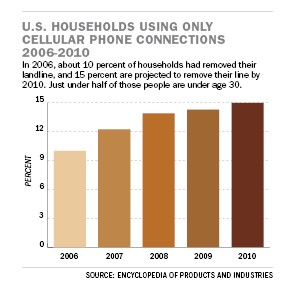If advertising junior Allison Pankow had been a college student 25 years ago, she said she may have been more attentive in class. Why? Because she wouldnâÄôt have had a cell phone. The cellular phone turns 25 years old this October, after its debut in 1983. The first mobile phone, which resembled a large cordless phone, has evolved into a multipurpose media center, with e-mail, camera, music and scheduling capabilities. T-mobileâÄôs G1 phone hits store shelves Wednesday, making it the first smart phone with Google Android technology, which allows the use of a variety of new applications and takes the phone one step closer to a personal computer. Pankow, who often sends text messages during her classes, said she canâÄôt imagine not having a cell phone, although she gets a taste of what it would be like when she forgets her phone at home for a day. âÄúWhen I forget it, I feel anxious,âÄù she said. âÄúI get anxiety about whoâÄôs calling me.âÄù Text messaging friends and family during the day while at work or school and calling to make plans or stay in touch with family and friends far away are the main uses for her cell phone, Pankow said. Lee Humphreys, an assistant professor of communications at Cornell University , studies the social uses and effects of communication technology. She said the cell phone is most often used on college campuses as a way to have an âÄúumbilical cordâÄù connection with their parents while away at school and to communicate with friends. Early research indicated cell phones would discourage face-to-face communication, Humphreys said, but that theory has been proven false. Students often use their cell phones to meet up with friends at libraries and cafés, even if itâÄôs just to say hello, she said. Economics junior Eric Nelson said he exchanges about 70 text messages each day with friends. Although he relies on his phone to make plans, he said having a phone also makes him feel safer while driving. âÄúItâÄôs great to have when your car breaks down in the middle of winter,âÄù he said. This past winter, Nelson said his engine started on fire and he was able to get help quickly because of his cell phone. Pankow admits everyday life without a cell phone might not be that bad. She said getting ambiguous text messages or phone calls during the day from people needing favors can be hectic. âÄúIt would be less stressful,âÄù she said. âÄúTalking over the phone or text, you donâÄôt know peopleâÄôs emotions, so you have to guess.âÄù But with mobile technology here to stay, Humphreys said the iPhone gives consumers the best window into where cell phones are headed in the next 25 years. âÄúMobile phones have been one of the most quickly adopted technologies,âÄù she said. âÄúWe will continue along that track in terms of creativity of applications.âÄù
The cell phone turns 25

Image by Ashley Goetz
Published October 21, 2008
0

